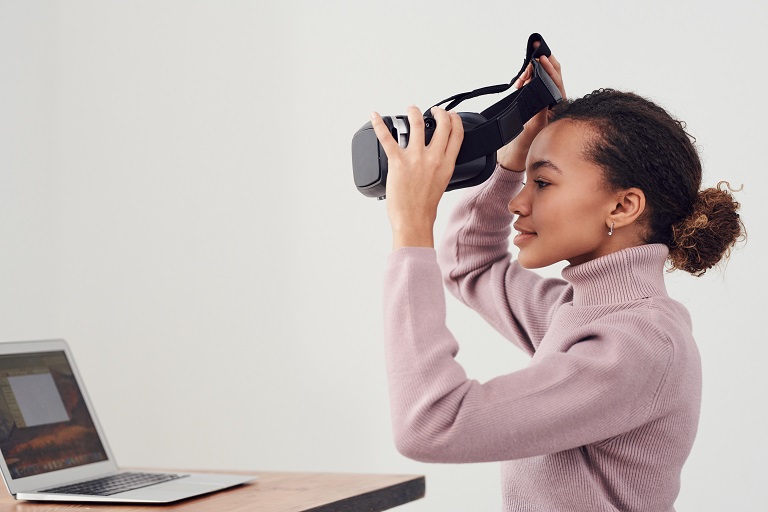Augmented reality is one of the latest technologies taking the world by storm. Seen in everything from video games and retail, augmented reality is also making news in the medical field. When it comes to healthcare, augmented reality is the future. Here are some ways that AR is making advances to the healthcare field.
Medical Training
Augmented reality, unlike virtual reality, shows virtual objects on top of the physical reality around you. This can be an immensely useful tool when it comes to medical training. AR allows people who are learning the medical field to interact visually with virtual representations of bodies and organs. This can be extremely helpful when it comes to learning where organs and systems are located in the body. The idea is to allow people who are learning to make mistakes on virtual bodies instead of in a dissection lab or on a real body.
AR goggles also allow medical teachers to follow their students without being in the same location. With some headwear allowing other users to see through the eyes of the wearer, medical professionals can provide instant feedback and guidance to their students during training.
Surgery
Surgeons use a variety of tactics to visualize the area on which they will operate. When performing an augmented reality operation, however, there is no more need for guessing. AR projects a visual, 3-D representation of the patient’s anatomy into the surgeon’s field of sight. This enhancement is likely to improve patient outcomes and experiences. Due to the increased accuracy that is achievable with AR, surgeons are less likely to make mistakes during operations. By allowing surgeons to become more precise and efficient, AR will help surgeons to save more lives.
Blood Vessel Mapping
According to The Medical Futurist, 40% of IVs miss the vein on the first try. Children and the elderly are more likely to take several pokes before finding the vein. With AR bsr sperrmüll abholung berlin kostenlos technology, however, a patient’s vein system can be digitally mapped out and displayed on top of the skin. This greatly increases the odds of hitting the vein on the first try.
This type of mapping also allows easier and more accurate attaching of blood vessels when it comes to reconstructive surgery. Being able to detect exactly where veins and other blood vessels are located greatly reduces the time that certain operations will take and can allow patients to spend less time under anesthesia as well.
Patient Education
Pharmaceutical companies are also finding plenty of benefits to the use of augmented reality for patients. By using AR, pharmaceutical companies can show a patient exactly what effect a particular drug will have on their bodies. This empowers patients and gives them a better understanding of how their medicine works. Some AR apps have been released that will show a patient different pain points on their bodies and which medication would be best for their symptoms. This can also give patients a better understanding of their symptoms and how to describe them.
Medication aside, AR can also be used to give patients a better understanding of how medical procedures will ultimately affect their bodies. This also helps improve patient engagement, which ultimately helps the patient work with their doctor to determine an appropriate medical plan. While healthcare often involves complex topics that are difficult for patients to understand, AR offers a visual way to explain procedures and medications that make them more easily understood.
There are plenty of ways that AR is making breakthrough advancements in the medical field. From coaching students to perform better, to educating patients about the medicines they take, AR is only going to keep enhancing the healthcare system as it becomes more prevalent. AR can help medical professionals gain a better understanding of the human body and offer more efficient and accurate medical procedures that will ultimately make healthcare safer for patients. By improving surgical accuracy and capability, doctors will be able to help more patients than ever before.






























